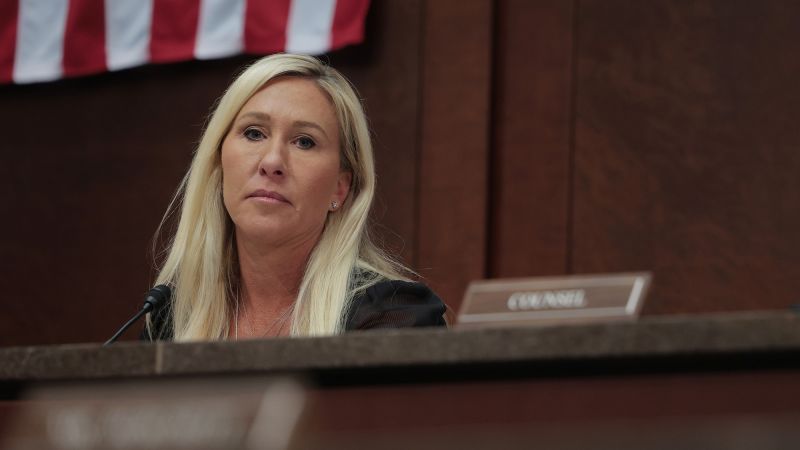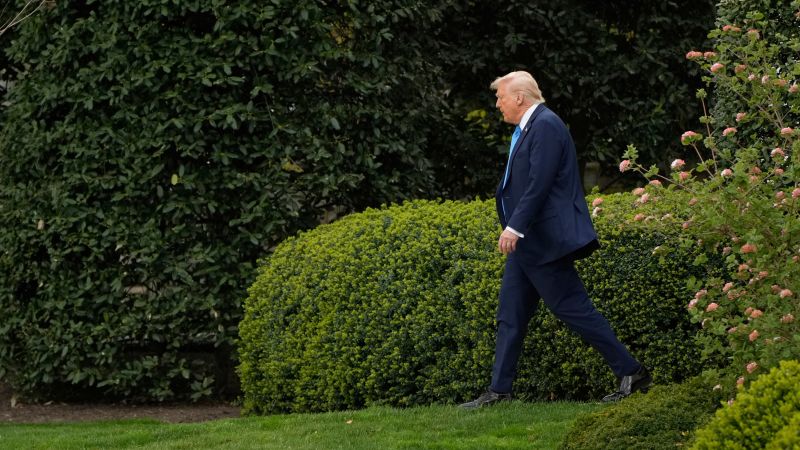For Rep. Marjorie Taylor Greene and other House Republicans, today’s DOGE subcommittee hearing is about tarnishing PBS and NPR with accusations of bias and targeting them for defunding.
For the broadcasters, today is about defending their existence – and maybe, just maybe, educating people about how public media actually works.
What will win the day? National political noise or local media impact?
The hearing, titled “Anti-American Airwaves: Holding the heads of NPR and PBS Accountable,” started at 10 a.m. ET. NPR CEO Katherine Maher and PBS CEO Paula Kerger are both testifying. So are a local station operator and a conservative critic of taxpayer-funded media.
The hearing is meant to advance long-held Republican arguments against PBS and NPR.
Taylor-Greene opened Wednesday’s DOGE subcommittee by branding PBS and NPR “radical left-wing echo chambers” before accusing the public broadcasters of “grooming and sexualizing” children, using DEI for news standards and listener demographics, and wasting taxpayer dollars.
“For too long, taxpayers have been asked to fund biased news. this needs to end, and it needs to end now,” Taylor-Greene said as in her opening remarks.
President Donald Trump said Tuesday that the networks are a “waste of money” and claimed “he would love to” defund them. And yet the funding bill passed by Congress and signed into law by Trump earlier this month included $535 million for the Corporation for Public Broadcasting, the entity that disburses funds to 1,500 local radio and TV stations.
Congress budgets money for CPB two years in advance, so the recent bill means public broadcasting is funded through 2027.
So on one level, today’s hearing is a theatrical performance. But PBS and NPR leaders are taking it seriously. They have been preparing for the Republican interrogation for weeks. And they want to use the opportunity to justify the federal funding.
Local TV and radio stations are doing the same. From North Country Public Radio in upstate New York, to New Mexico PBS in Albuquerque, to Hawaiʻi Public Radio in Honolulu, publicly supported stations are using the right’s political attacks to galvanize grassroots support and raise money from donors.
This is a “a critical moment for KQED,” an email from the SF radio station said yesterday. DOGE has “set its sights on public media,” an article from Rocky Mountain PBS explained. “Our future is in peril,” a letter from WBUR in Boston exclaimed.
WBUR CEO Margaret Low wrote that the political threats – including the FCC chair’s probe of PBS and NPR sponsorship practices – compound the “business model challenges that just about every news organization faces.” It’s fundraising drive season, so her letter understandably urged supporters to donate.
The letters and Q&As have had common themes: Explaining how taxpayer money trickles down to broadcasters and emphasizing the local benefits. Hawaiʻi Public Radio CEO Meredith Artley, the former editor in chief of Digital, wrote that her news and classical music stations are “94% community supported,” with the remaining 6% coming from CPB.
If the federal funds were diminished, the Hawaii stations would survive, but “there would likely be damage to the nationwide system that provides programming and infrastructure that HPR and many other stations rely on,” she wrote.
That’s the key point: It’s a system. And smaller stations tend to need more help from the system. At KTOO Public Media in Alaska, for example, fully 30% of the budget comes from CPB. “This federal funding is essential in ensuring that Juneau’s only local-owned newsroom can continue to deliver you the news from our community,” the station said.
Stations large and small are highlighting their local responsibilities.
“Whatever happens in Washington, DCWQED is not going anywhere,” Jason Jedlinski, CEO of Pittsburgh’s PBS station, wrote on LinkedIn. His post listed recent features (segments about a local farm, a reading club, and so on) that, quite frankly, few other media outlets would spend time on.
At today’s hearing, Republican lawmakers will bash national news controversies while the witnesses will pivot to the local impacts.















